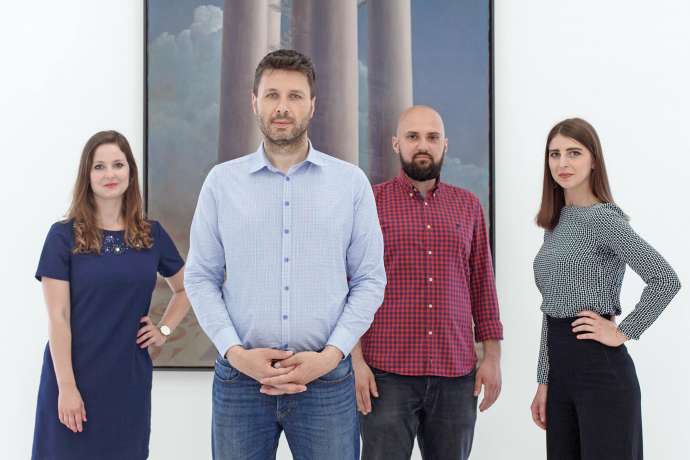STA, 4 June 20202 - The Slovenian art market could be in for an overhaul, as two private agencies have been founded to improve transparency in what is often an opaque field, where the majority of all are sales happen on the black or grey market.
Damjan Kosec founded a commercial gallery focusing on Slovenian contemporary fine art called SLOART at the end of September 2019. He told the STA at the time the gallery aimed to encourage the creation of an art market in Slovenia "based on transparency, ethics and competence".
Related: SLOART – Working to Grow the Slovenian Art Market
But soon it became clear that more effort will be needed to make deals transparent, so he decided to found two private agencies. ARTSTAR will deal with certification and appraisals, and ARTINDEX will explore the art market and provide access to the prices fetched by Slovenian art pieces.
Kosec told the press on Thursday the art market in Slovenia was beset by anomalies because of its history and in particular because the ministries of finance and culture saw no interest in regulation.
By publishing the prices fetched by works by Slovenian artists, ARTINDEX will restore transparency on the market, and encourage or even force artists to issue invoices.
"If somebody does not issue invoices [for the work they sell], they will have no registered sales. At the moment this is not a problem, but in two or three years collectors will also start paying attention to how much an artist sells," Kosec explained.
In the future, the agency will be compiling annual rankings of the 100 most important Slovenian artists.
Another big problem of the Slovenian art market is forgery. Kosec pointed to rumours and cases when someone has bought a forged art piece, which created distrust among collectors.
Often the problem is also that appraisals diverge substantially. This is why the ARTSTAR agency was founded, where a four-member team of art historians, critics and appraisers, and a group of experts in art and materials will be setting the prices, acting independently.
Kosec hopes the two agencies will help set up an art market in Slovenia that will be comparable to art markets in other countries.
Other galleries do not seem to be open to this project though, with Kosec noting that they had all created their own micro markets, clients and prices. But he hopes they will be drawn to his project eventually or even be forced to join in.
Kosec's main goal is to set up a market for living authors, as this is where the bulk of grey economy takes place.
State regulations and bad laws are forcing artists to resort to grey economy, Kosec said, noting that through taxes and contributions the state took up to 56% of the money a young or retired artists received for an art piece, and the remaining 44% were split between the artist and the gallery.
Moreover, there is a ceiling for earnings of artists whose contributions are paid by the state as a form of aid, so when artists come close to reaching this ceiling with their earnings, special fees or financial prizes, they stop issuing invoices for fear of losing state support.






